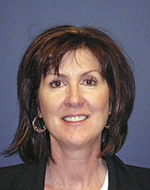Page Content
New publication aims to open discussion on truth and reconciliation
OTTAWA — The Canadian Teachers’ Federation (CTF) has released a new resource that aims to help teachers engage in discussions about indigenous issues. Entitled Truth and Reconciliation: What is it about?, the classroom discussion booklet was developed in partnership with the National Centre for Truth and Reconciliation.
“This booklet aims to support dialogue about residential schools and to explore how they have hurt generations of First Nations, Métis and Inuit people,” said CTF president Heather Smith. “It is important that students better understand the history of residential schools and how Canadians must work collectively as part of the reconciliation process.”
This booklet offers first person content from students — indigenous and non-indigenous — through words, thoughts, drawings and poems. This creative expression project was conducted as part of CTF’s social justice program, Imagineaction.
The booklet is now available through CTF’s online publications catalogue. ❚
Challenge mental health stigma in the classroom
EXECUTIVE REPORT
 Pauline Théoret
Pauline Théoret
We all know and love someone who suffers from a mental disorder. Most of us have suffered short moments of depression and/or anxiety tied to specific life events — trials and tribulations of sorts.
Imagine for a moment that every single day of your life is a series of trials and tribulations, falling one on top of the other in an unceasing manner. Imagine the weight on your shoulders, but most of all on your heart and your soul. You can well imagine that you would feel lost, misunderstood, alone and different.
Some students in our schools today feel that way because they don’t believe they have anyone to turn to — for solace, support, friendship and belonging. Mental Health Stigma — Challenging it together! is a discussion booklet for the classroom from the voices of students across the country. Students today want to make a difference, want to break down barriers and have a strong sense of right and wrong, but they may have preconceptions and misconceptions about mental illness. As their teacher, you can help them do more to challenge the stigma by having the classroom conversation. Engage your students to tackle the issue of mental health stigma at the school level.
As teachers, you can access an Imagineaction subsidy of $300 to help pay for awareness-raising campaign expenses. Let’s challenge ourselves and our students; together we can help eliminate mental health stigma.
This booklet is now available through CTF’s online publications catalogue. ❚
Pauline Théoret is a program officer of CTF’s International and Social Justice Program. She is currently on leave.
Profits come before students in Uganda – report
A new study released Oct. 5 by Education International (EI) reveals how profits come before students and how legal standards in education have been disregarded by an edu-business operating in Uganda.
The EI report, Schooling the Poor Profitably, follows weeks of investigation into the operations of Bridge International Academies (BIA) in Uganda, where it has established 63 private for-profit schools since February 2015, with an estimated 12,000 fee-paying customers. This is the same company that attempted to intimidate Canadian researcher, Curtis Riep, by having him falsely accused and arrested while he was in Uganda last May.
The company has been the subject of significant criticism for failing to meet legal and educational standards, and a government order closed all the schools in August. Although the schools have since reopened temporarily, EI is keeping a watchful eye.
In summary, the key findings of the report are
- nine of 10 teachers hired by BI are unqualified and unlicensed;
- teachers read from a script as part of the BI “Academy-in-a-box,” with pre-programmed curricula transferred to tablet e-readers;
- BIA facilities are below par, with reports of “poor hygiene and sanitation” in school buildings, which often do not meet the basic requirements and minimum standards;
- school fees prevent poor families from sending their children to school;
- school fees are 20 per cent of family income — per child; and
- drop-out rates are high — from 10 to 60 per cent.
The report can be downloaded at https://download.ei-ie.org. ❚
Dominica association earns World Teachers’ Day award
The Dominica Association of Teachers is the 2016 recipient of the Norm Goble World Teachers’ Day Award, which has been granted annually since 2014 to a Canadian Teachers’ Federation (CTF) partner organization for its World Teachers’ Day activities. The award is named in honour of
Dr. Norman Goble, a former secretary general of the Canadian Teachers’ Federation who helped spearhead the creation of World Teachers’ Day. Recipients are chosen based on proposals for World Teachers’ Day activities.
The award includes $1,000 for the recipient organization to carry out its proposed World Teachers’ Day activities. In addition to the award, CTF has also cited the Fédération des Syndicats de l’Éducation Nationale in Togo for an honourable mention, which includes $500 for World Teachers’ Day celebrations. ❚
